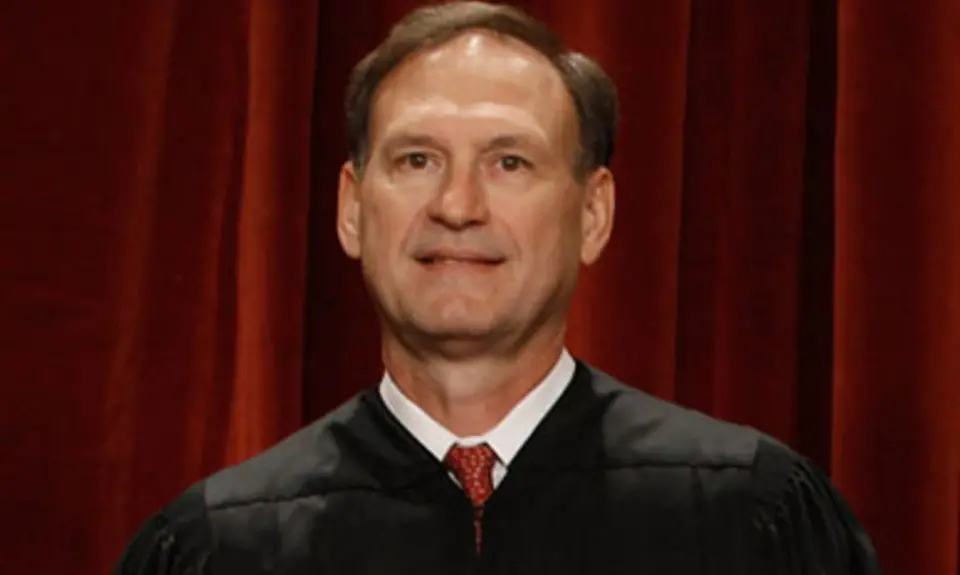The Supreme Court issued its decision in the racial gerrymandering case of Alexander v. South Carolina Conference of the NAACP. The 6-3 decision by the conservative majority weakened Black people’s ability to fully participate in our democracy.
A Pro-Insurrection Justice Decided a Voting Rights Case
The majority opinion in this voting rights case was written by Justice Samuel Alito, who has publicly signaled support for violently undoing election results, twice displaying flags at his home that are closely associated with election-denying insurrectionists. It shows just how corrupt the majority has become. It is a stain not just on Alito, but also on Chief Justice John Roberts, who purports to care about the integrity of the Court he leads.
What was this case about?
This case is about how South Carolina Republicans drew the boundaries for a congressional district long anchored in Charleston County. They moved more than 30,000 Black voters out of the district, which made it whiter and more likely to elect a Republican. The South Carolina NAACP went to court. They said the voters were moved at least partly because of their race, which is not legal.
But the Republican legislators claim they didn’t take race into consideration at all. Instead, they claim they were engaged in a purely partisan gerrymander, which – thanks to a previous decision by the conservative justices – is perfectly legal. So there was a factual dispute that had to be resolved: Was race the predominant motivation?
What happened at the trial?
Redistricting challenges like this are heard by a panel of three judges. In this case, the panel held an eight-day trial and heard from 42 witnesses. The judges weighed testimony and determined which witnesses were credible – and which weren’t.
The judges unanimously ruled for the NAACP. They simply didn’t find the legislators’ explanations credible. It wasn’t even a close call. The judges found the evidence of a racial motivation “striking.” Based on this factual finding, the judges made the legal conclusion that this was an unconstitutional racial gerrymander. The case then went directly to the Supreme Court.
What did the Supreme Court do?
Justice Alito’s 6-3 majority opinion was joined in most part by the full bloc of arch-conservative justices. (There was one section that Thomas didn’t join.) The justices reversed the lower court and upheld South Carolina’s redistricting scheme.
Alito paid lip service to the longstanding principle that an appeals court should only overturn a trial court’s factual findings if they are clearly erroneous. But then he gamed the system to turn that standard upside down.
Specifically, Alito wrote that the three-judge panel’s decision was “clearly erroneous” because they should have presumed that legislators act in good faith. According to Alito, the evidence cited by the three-judge panel was not enough to overcome that presumption of good faith.
Alito found another reason to reverse the lower court: The NAACP did not offer an alternative map of their own. According to Alito, the lower court should have interpreted that as “an implicit concession” by the NAACP that the state legislators did not act with race as the predominant factor.
What did the dissenters say?
Justice Elena Kagan wrote the dissent, joined by Sonia Sotomayor and Ketanji Brown Jackson. She sharply criticized not just the majority’s reasoning, but also their motivation.
Kagan characterized the majority as “intent on changing the usual rules when it comes to addressing racial gerrymandering claims.” She called the map requirement a “new rule of evidence” never before required in cases like this. And she noted that Alito had not really followed the Court’s standard of upholding a trial court’s findings of fact unless they are “clearly erroneous.”
Normally, an appeals court respects a trial court’s decision about which party is telling the truth unless that decision is completely implausible. That’s because trial court judges see all the evidence themselves and watch people’s testimony as it happens. That makes them better able than an appeals court judge to decide if a witness is credible.
But, Kagan pointed out, the Supreme Court majority did not defer to the trial judges’ factual findings. Instead, they deferred to the claims of one party: the state legislators accused of violating the Constitution.
Kagan pointed out that the majority is “reworking the law” and now following Justice Alito’s dissent in a racial gerrymandering case called Cooper from several years ago. (Cooper was decided on a Court that had not yet been transformed by Neil Gorsuch, Brett Kavanaugh, and Amy Coney Barrett. This is yet another example of the current Court overruling precedent protecting our rights and turning dissents in prior cases, like Roe v Wade, into the majority.)
Kagan condemned the majority for being more concerned about lawsuits challenging unconstitutional racial gerrymandering than they are about the unconstitutional action itself:
Perhaps most dispiriting is what lies behind the Court’s new approach — its special rules to specially disadvantage suits to remedy race-based redistricting. The Cooper dissent thought plaintiffs would use racial-gerrymandering actions as “weapons of political warfare.” And it lamented that courts finding gerrymanders were “accus[ing]” States of “offensive and demeaning conduct.” So the problem was more with challenging racial gerrymanders than with putting them into place. Today, that view becomes central to the majority opinion. The suspicion, and indeed derision, of suits brought to stop racial gerrymanders are self-evident; the intent to insulate States from those suits no less so.
What is the impact of the Court’s decision?
The Court majority’s decision makes it easier for politicians to draw unfair voting maps that reduce the political power of Black Americans. The conservative justices have made it harder for lower court judges to enforce the Constitution when legislators act with impermissible racial motivations.
But this bad decision from an ethically tainted Court may also help Americans realize the urgent need for reforming the Court.
